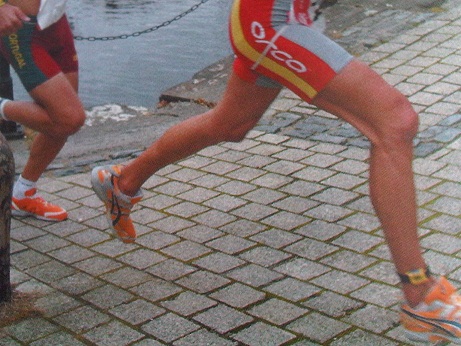PHYSIOLOGY – THE HEALTH BENEFITS OF RUNNING
What are the benefits of running?
As long as runners are sensitive to their bodies and know what activities are suitable for their body types, running can really be a great way to strengthen your physique. The amount of benefits running can bring you definitely beats the amount of effort you will be putting in!
Cardiac Strengthening
After running for a period, the heart muscles become stronger. Each heartbeat becomes more powerful as its efficiency increases. A lifestyle with fitness certainly reduces the risk of coronary heart failure and diseases. Your cardiovascular system will also improve, as now the stronger heart pumps more blood to the capillaries, leading to more fine capillaries in the working muscles, and in turn increasing blood supply to the overall body frame. Regular running also helps maintains a healthier inner lining to the body’s blood vessels, reducing the risk of artery blockages.
Powerful Lung Capacity
Regular running will also enable your lungs to be stronger and more expansive. They will be able to inhale and expel more efficiently than people who are less fit.
Lower Cholesterol Levels
Running has proved to be beneficial to cholesterol. There are 2 types of cholesterol, namely the “good cholesterol” and the “bad cholesterol”. Cholesterol is carried through the blood by lipoproteins. High-density lipoproteins (HDLs) contain small amount of cholesterol and carry any excess cholesterol from the tissues to the liver. The Low-density lipoproteins (LDLs) carry the highest level of cholesterol and they are capable of depositing the cholesterol on the artery walls.
Because of this differentiation, the High-density lipoproteins (HDLs) are termed as the “good cholesterol” while the Low-density lipoproteins (LDLs) are termed as the “bad cholesterol”. As such, regular running or exercise will help in increasing the HDLs level against the LDLs, thereby acting as a “cleaner” to the coronary “pipe” and other arteries in your body.
The deposit build up and plaque that is thickening along the walls of the arteries tend to block blood circulation to the brain or the heart, thereby cutting the oxygen supply to other organs of the body, killing certain parts of the tissues. When more parts of tissues are destroyed, that is when strokes or heart attacks are triggered.
Keeping Joint Problems at bay
There are myths about some of the constant joint pains and injuries are due to running regularly. This is not true. Joints are poorly supplied by blood in general due to the fact that they are made up of complex structure of cartilage and bone with no major blood vessels in them. In running regularly, the process of the constant movement of the joints improved the way one exercises, thereby increasing the blood supply to the joint areas, resulting in increased efficiency of the bones and joints.
One other myth is overrunning can deteriorate the minerals of the bone structure such as calcium, magnesium and potassium; however, this is in fact, a dietary issue. On the contrary, regular exercise and healthy running helps to increase the supply of calcium and other minerals to the bones. As the body’s calcium is mostly stored in the bone, high-impact exercises places a small amount of stress on the fibula, femur and tibia bones, and this actually strengthens the process which builds up the bone density. This is also known as calcification, making your bones stronger and more resilient.
Running helps to Stimulate the Brain
As contradicting as it sounds, most runners find running a form of “de-stressing” and stimulates the creativity in the mind. It is true that running increases the blood supply to the brain and stimulates the thinking and creative parts of the brain. A lot of runners find inspirations during running for the preparation of writing, speeches, work strategies, etc.
One of the amazing benefits of running is its ability to improve the psychological nature of the person. In order for you to decide to take up running, it takes a tremendous amount of self-discipline, commitment, effort and sacrifices. This is especially so when you do not have a running buddy or running partner, who sometimes can be your source of energy and encouragement for you to spur on. The motivation has to come from you.
As such, along the way, runners tend to develop higher self-esteem compared to those who do not run or exercise at all. As you run, your body gets toner and fitter, you will gradually like the way you look when you look at yourself in the mirror. This increases self-respect and leads to confidence. Truth be told, a handful of runners become so proud of themselves they feel they have control over their destiny as they immerse themselves in the role of a player in life rather than an audience or spectator.